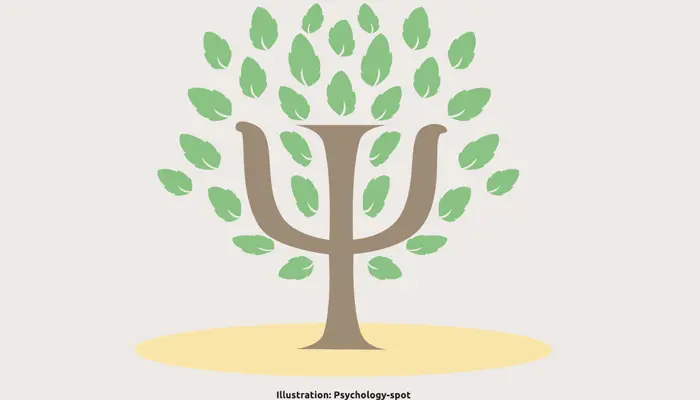
A long time has passed since 1879, the year Wilhelm Wundt founded the first laboratory for Experimental Psychology at the University of Leipzig and set the milestone that would mark the official emergence of psychology as a science. Since then, have been developed different branches of psychology, multiple theories of the mind have emerged and been refuted, and has been filled the arsenal of psychological methods and techniques taught today in psychology courses.
However, condensing all that knowledge in the time that lasts a university career is practically impossible. Therefore, those who study General Psychology must choose a branch. A specialty not only provides the theoretical knowledge, but allows also the development of the skills and competencies necessary to practice in certain areas of Psychology.
The American Psychological Association recognizes officially 18 specialties of Psychology, from Clinical Neuropsychology and Industrial-Organizational Psychology, which were the first to obtain this official recognition, to Clinical Psychopharmacology, which was just recognized in 2020.
With so many options, the decision is not always easy. In fact, if you have studied psychology and are thinking about choosing a branch, it is important that you carefully weigh the pros and cons, weighing both the pragmatic and motivational factors.
How to choose well between the different specialties of Psychology
1. Who?
Most psychologists work closely with people. Therefore, one of the first questions to ask yourself before choosing a branch is which group you would like to work with. Who are the people with whom you feel most comfortable, those that, based on your interests and abilities, you could help the most?
Would you like to work with children, adults or the elderly? Do you prefer to work with groups, such as families or communities? Are you comfortable working with people who have mental disorders or do you prefer to focus on areas such as coaching?
2. Where?
The work environment plays an essential role in job satisfaction and motivation, so it is not a detail that you can ignore when choosing your specialty. When you close your eyes and imagine your professional future, where do you see yourself working?
You may see yourself in a hospital or a small private clinic. You could see yourself teaching or working with children in a school. Perhaps you imagine yourself in a company designing marketing plans or giving workshops to improve your job performance. You may even see yourself doing crisis intervention in emergency, catastrophic or disaster areas.
3 What?
There is usually a gap between dreams and reality that can make the difference between professional satisfaction and dissatisfaction. Some psychology branches are covered by an unrealistic halo that has largely been fed by literature and movies. Undertaking a specialty with unrealistic expectations about daily practice can lead to a huge disappointment.
Therefore, before choosing a specialty, make sure you have clear its fields of action and the main activities associated with it. In other words, do you know what you will spend a large part of your working day on? Do you want to dedicate yourself to psychological orientation, teaching or perhaps research? Identifying the main tasks that you will develop in your professional future will help you determine which is the best specialty for you.
4. When?
Balancing professional and personal life is essential for our well-being. In the case of psychologists, the need to disconnect from work is even more important because they are often exposed to a great emotional load that can trigger problems such as burnout syndrome or vicarious trauma.
Psychologists do not have to be on duty like doctors, but there are certain specialties that demand a greater dedication or that may have more untimely schedules. If you choose Clinical Psychology or specialize in Emergencies and Disasters, for example, it is likely that you will have to face emergencies outside of normal working hours. Therefore, ask yourself to what extent are you willing to work outside normal hours or travel to teach workshops and courses.
5. How?
The path to follow to pursue a specialty is also important. Analyze from an objective perspective the time, effort and preparation required. Ask yourself how much time you can spend studying. Do you have the possibility of studying full time or do you prefer to study at a distance to combine it with a job? How much are you willing to invest in your specialization studies?
As a general rule, online Psychology courses provide greater flexibility, allowing you to advance at your own pace and they are usually cheaper. In fact, different investigations have proven that online education is as good as presential and its students achieve the same academic results.
Sources:
Paul, J. & Jefferson, F. (2019) A Comparative Analysis of Student Performance in an Online vs. Face-to-Face Environmental Science Course From 2009 to 2016. Front. Comput. Sci; 12: DOI: 10.3389.
Daymont, T. & Blau, G. (2008) Student Performance in Online and Traditional Sections of an Undergraduate Management Course. Journal of Behavioral and Applied Management; 9(3): 275–294.
Gil, T. et. Al. (1998) Una historia de la Psicología Moderna. Madrid: McGraw-Hill.



